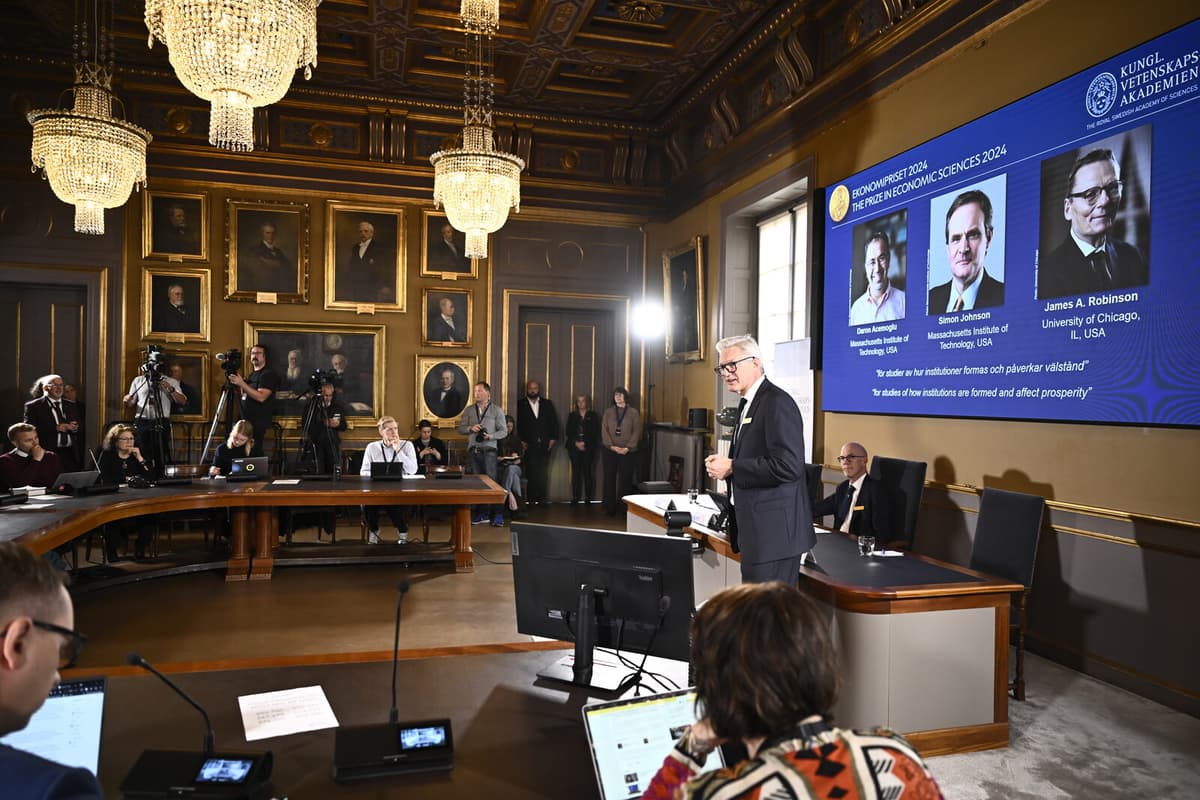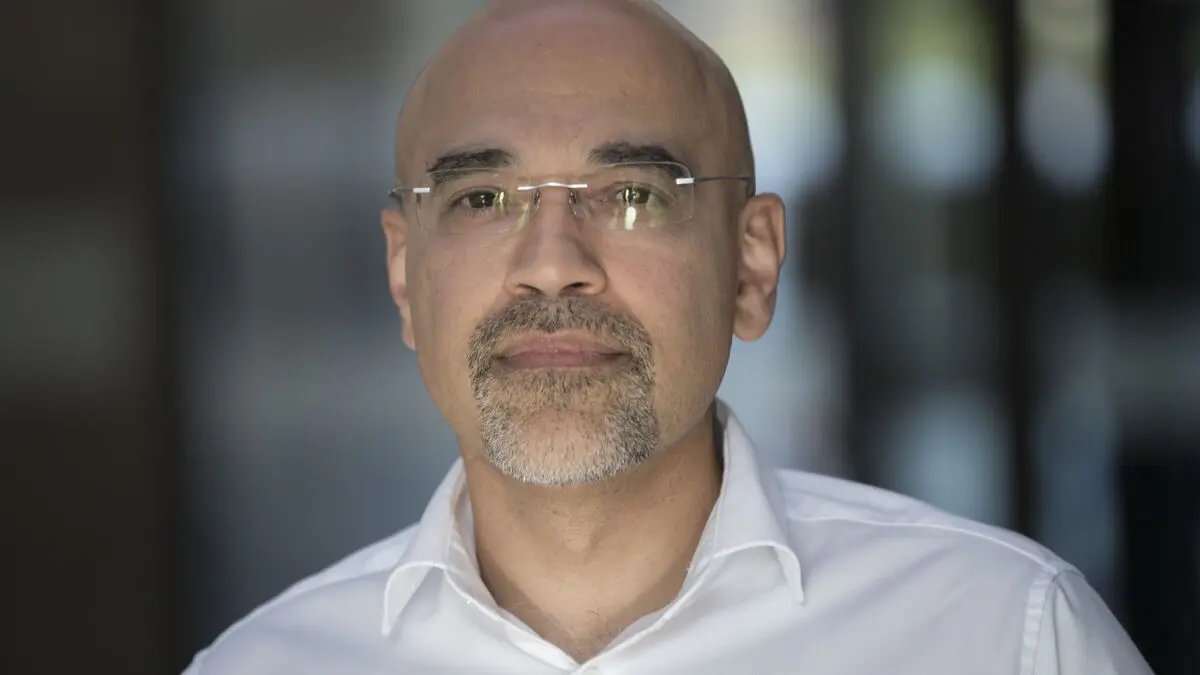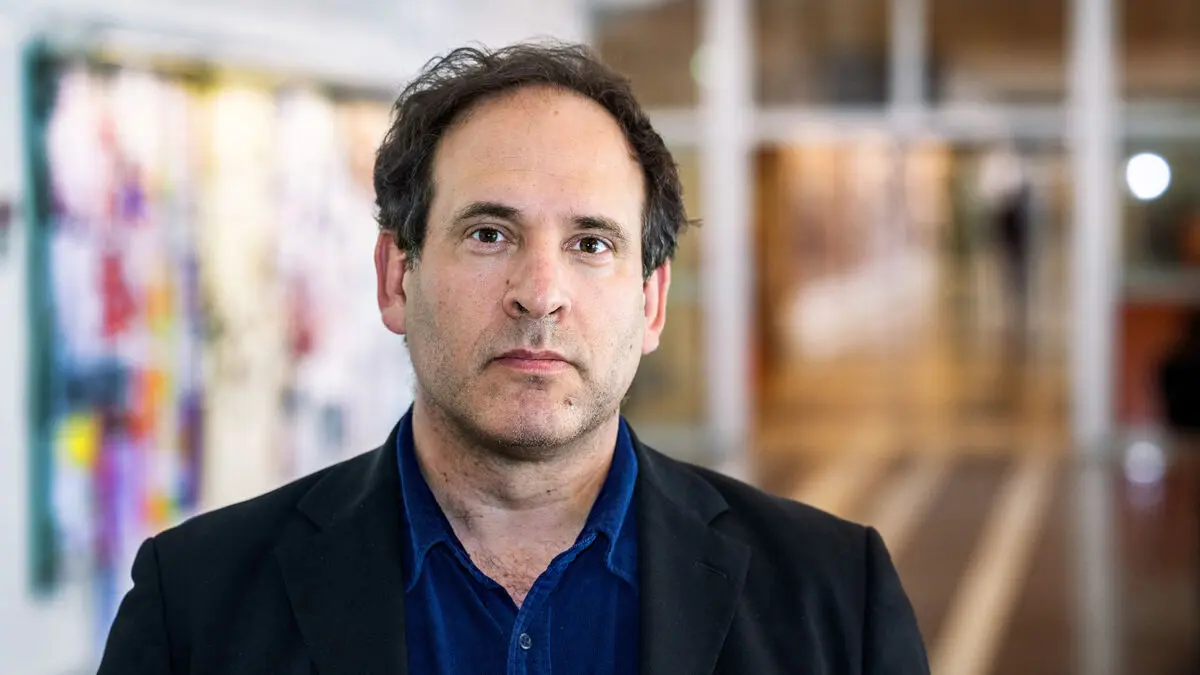One of the winners, Daron Acemoglu, is participating via video link from Athens when the prize is presented at a press conference at the Royal Academy of Sciences.
It's a real shock, says Acemoglu, who was among the favorites tipped in advance.
This year's prize is about understanding why some countries are rich and others are poor. To achieve this, the trio has studied the Europeans' colonization of the world centuries back in time and what type of political and economic institutions were introduced or maintained in the different countries.
Rich countries became poor
Research has shown the importance of good social institutions for a country's prosperity.
It's very important because it provides a good tool for how to tackle poverty and other types of problems we see around the world, says Tommy Andersson, professor of economics and member of the prize committee.
Previous theories, according to Andersson, have assumed that countries that become rich automatically get democracy. This year's winners have shown that it's often the opposite, that countries with good institutions often become rich.
Research has also shown that countries that were relatively rich when they were colonized have generally ended up in a worse situation than countries that were poor when they were colonized.
In countries where you could exploit many resources, you typically introduced institutions that favored a small elite. That meant that countries that were previously rich got exploitative institutions that in the long run proved to be very bad for prosperity, says Andersson.
Influenced the UN
Poorer and more sparsely populated colonies gave more room for larger settler colonies.
Europeans who came to those areas wanted to create a system that would benefit themselves, but also benefit, for example, better protection of property rights so that they could invest in their new homelands, says Tommy Andersson.
Institutions that protected property rights proved to be good for long-term growth.
According to Tommy Andersson, the research has, among other things, influenced several organs within the UN.
They have included it in their 2030 goals to create inclusive institutions. In that sense, they have contributed to getting this issue of institutions' importance on the agenda, he says.
All three winners are active at universities in the USA.
Daron Acemoglu, born 1967 in Istanbul, Turkey. Professor at Massachusetts Institute of Technology (MIT) in the USA.
Simon Johnson, born 1963 in Sheffield, UK. Professor at Massachusetts Institute of Technology (MIT) in the USA.
James A Robinson, born 1960. Professor at the University of Chicago in the USA.






